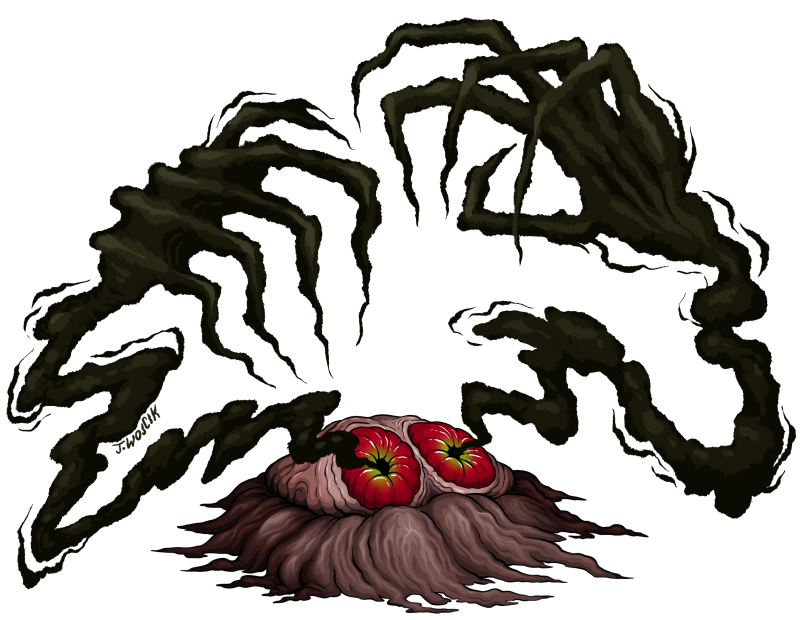Flysore (5e Creature)
Flysore[edit]
|
Tiny plant, neutral Armor Class 12 (natural armor)
Damage Vulnerabilities fire Stench. Any creature that starts its turn within 15 feet of the flysore or moves there for the first time on its turn must succeed on a DC 14 Constitution saving throw or be poisoned until the start of its next turn; if an undead or carrion-eating creature fails this save, it is charmed instead. On a successful saving throw, the creature is immune to the flysore's stench until the end of its next turn. Swarm Hands. The flysore can use its flies as appendages, and has a reach of 30 feet. ACTIONSMultiattack. The flysore makes two fly swat attacks. Fly Swat. Melee Weapon Attack: +6 to hit, reach 30 ft., one target. Hit: 14 (4d6) piercing damage, and the target must succeed on a DC 11 Dexterity save or become blinded and start suffocating until the end of its next turn.
|
Initially growing as a coconut-sized cyst in the flesh of a host organism, the flysore eventually sloughs off, rolls for some distance and finally bursts open into its "blooming" stage. Comprised of more dead, decaying tissues than living cells, its pus-filled head becomes a nesting site for carrion flies integrated so deeply into its consciousness that they effectively function as compound pseudopoda. Even stationary, a flysore's swarms can reach far across a battlefield, and the monsters make excellent guard beasts; some demons use many flysore together as part of a "moat" around their fortresses. |
Back to Main Page → 5e Homebrew → Creatures


